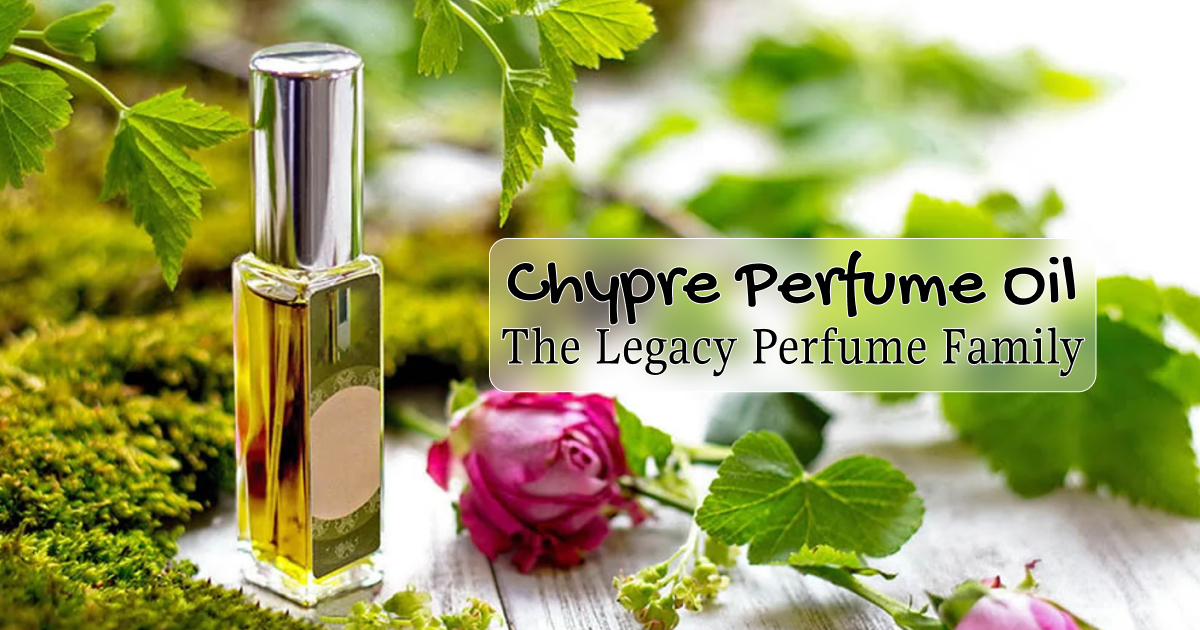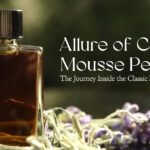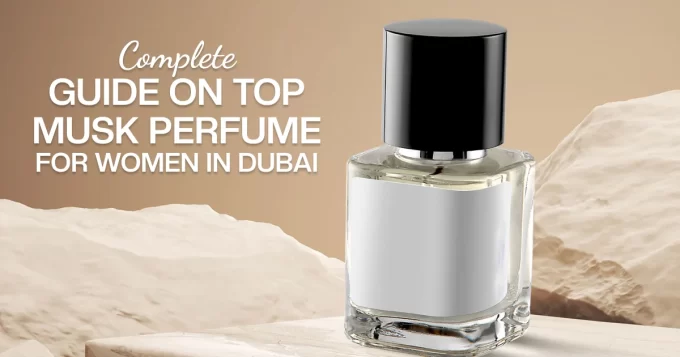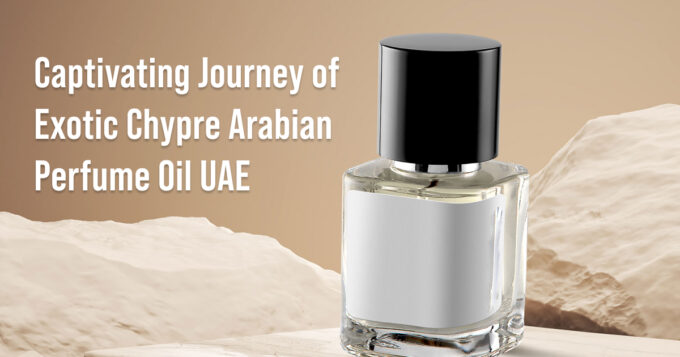Chypre Perfume Oil: The Legacy Perfume Family
Perfume is considered to be one of the most antique self-expression mediums and an expression of culture and, even sometimes, spiritual connection. In the immense family of fragrant families that exist, there is one that stands out specifically because of its gentle, elegant character: chypres.
It is truly a strong force on the perfume scene, capable of captivating, generation after generation of perfume fans with its unusual character resulting from a really complex structure-earthy, woody, and citrus nuances combined together in perfect harmony. Today, we are walking in the footsteps of chypre perfume oil, its history, composition, and place within the modern perfume landscape.
What is Chypre?
“The ‘chypre’ is named after the Mediterranean island that has been associated with the fragrant material of oakmoss and labdanum for a long time. In 1917, the French perfume manufacturer François Coty launched his perfume, Chypre, which would become the prototype for this type of fragrance. The basic elements for this scent were derived from natural aromatic essences found on the island.
This fragrance family has inspired many variations, including the chypre mousse perfume, which adds a modern twist with its emphasis on creamy, soft textures combined with the traditional earthy and woody notes characteristic of chypre fragrances.”
Chypre fragrances are known for contrasting qualities: often, the top note is sweet and fresh with a citrus character, in this case, quite dominantly bergamot, but then it can turn into a rich, warm heart of labdanum, and in the base, deep earthy oakmoss and patchouli. Together, these could just make up a sophisticated balance, fresh and sensual, clean and complex.
Perfumes of the fragrance category Chypre are appreciated for the long duration of fragrance life and for stripping since it ages on the skin to reveal slowly deeper facets.
Composition of Perfume Oil Chypre
Chypre perfumes are marked by a triangular structure of fragrance:
Citrus Top Notes: A strong image of a chypre fragrance can be already present in the opening impact via bergamot or other citrus fruits like lemon and neroli. The bright, zesty citric opens with the juice but brings it all back down with their superior middle and base ingredients.
Heart Notes: A chypre fragrance core counterbalances labdanum-a resin from the Mediterranean rockrose plant-with floral or woody notes. The addition of a blend of these warm, rich elements will give a sensual yet refined aroma.
Base Notes: Chypre-based fragrances are built around oakmoss, patchouli, and sometimes vetiver as their base. Earthy and woody in character, they anchor the fragrance, endowing it with its great dry down, sensuality, and sophistication.
When those ingredients distill into perfume oil, it tends to create a much more intense concentration and deeper experience than alcohol-based perfumes.
Why Chypre Perfume Oil is Special
There are so many scents in the marketplace, yet chypre perfume oils offer some benefits that are special:
Longevity: The perfume oils are more concentrated than the perfume oils in an alcohol-based fragrance, and they probably last longer. Chypre is extremely developed on the skin; it gives a rich scent that could last all day, thus ideal for the all-day wearer.
Depth and Complexity: Chypre fragrances with the peculiarity of intertwining earthy, citrus notes become a rather complex perfume. From every single hour, as the fragrance unfolds on the skin, various facets are opened, which is why perfume connoisseurs tend to be crazy about it.
Customize: Perfume oils can be mixed immediately with the desired fragrance. And herein lies one of the beauties of chypre oils, oakmoss and patchouli not excluded: chypre blends with equal success against floral, woody, or even spicy perfumes.
Flexibility of Chypre Perfume Oil
One of the reasons why chypre perfume oils are so adored is due to their versatility. Perfumes in this fragrance family can be suitable for both men and women because it defies the lines of traditional gender differences. Many perfumes from the chypre fragrance family tend to be unisex in nature because of this perfect balance of fresh and earthy notes.
“Moreover, chypre perfume oil is so easy to be versatile for different seasons and occasions. The bright citrus opening is so fragile that they can be applied in daytime in spring and summer, while the warm woody dry-down goes well with evening wear or cooler climate. This versatility is also a hallmark of vintage chypre perfumes, which beautifully blend these elements, allowing them to transition seamlessly from day to night and adapt to various settings.”
Classic Perfume Oils
Some of the most renowned perfumers, however, have also written chypre perfume oils that are not leaders among a sea of smells. Among them are:
Mitsouko by Guerlain: First introduced in 1919, Mitsouko is perhaps one of the most recognizable chypre perfumes out there. This scent features bergamot, peach, and oakmoss within it to unfold a deep, velvety feel over time. Though already richly long-lasting in oil, some may actually appreciate the lessening of base notes as if even more steeped in their actual richness.
Chypre Palatin by MDCI Parfums gets to the heart of what a modern vision of a classic chypre form – when using spices and flowers, leads to a rather sophisticated and powerful perfume oil. Galbanum and cistus alongside oakmoss in its execution yield a traditional chypre elegance.
Chypre Tribute Perfume Oil for the Olfactives who are accustomed to a fresh, woody odor. Coriolan comes out as the perfect combination of juniper, oakmoss, and patchouli. People can wear it either on their men’s or women’s line.
Chypre in Modern Perfumery
Although chypre fragrances have their roots in the early 20th century, the style of the perfume continues to evolve and inspire new scent compositions. Today, there are many niche perfume brands who continue to reinterpret the classical chypre structure through innovative ingredients or by altering the way a fragrance pyramid is expressed and suited for today’s tastes.
Some perfumers have added fruity peach or pear notes, which build up a fruity chypre. Others have softened the earthy elements with sweet scents, such as vanilla. So some creations are far away from the original definition of the chypre fragrance family; however, they still capture the essence in a modern, fresh type of scent.
Chypre is one of the perfume oils that have gained prominence more and more among those interested in artisanal, small-batch perfumes. Concentrate perfume oil allows the user to get the actual fragrance of perfume since the emission of each note occurs at its purest.
How to Use Chypre Perfume Oil
When applying chypre perfume oil, follow these instructions to get the best from the fragrance:
Pulse Points Application: Because perfume oils are so much more concentrated than alcohol perfumes, just a few dabs go quite far. Apply them to pulse points-the wrists, behind the ears, or the base of the neck-so the warmth from these pulse points diffuses throughout the day.
Layer with Other Scents: If you want an exceptionally unique fragrance, layer your chypre perfume oil. The natural earthy notes from chypre oils create such a rich base that they are well-suited for layering over floral or spicy scents.
Use Cautiously: Chypre perfume oils are intense, so begin with a small amount and top off from there as needed. The oil format tends to more closely cling to the skin, thereby giving it a more private scent trail, or sillage that does not overwhelm others.
Conclusion: The Long Life of Lure for Perfume Oil in Chypre
With fresh citrus, warm florals, earthy base notes, it is not surprising that chypre remains one of the most favorite fragrance families among perfume aficionados. Whichever its variants-be it based upon a rich historical feel or adaptability in creating new trends-chypre perfume oil represents the essence of scents that can be savored by any individual at any time.
The beauty of this scent endures; it makes one understand the durability of an excellent perfume — it does not only smell beautiful but it also has a story for every note.












